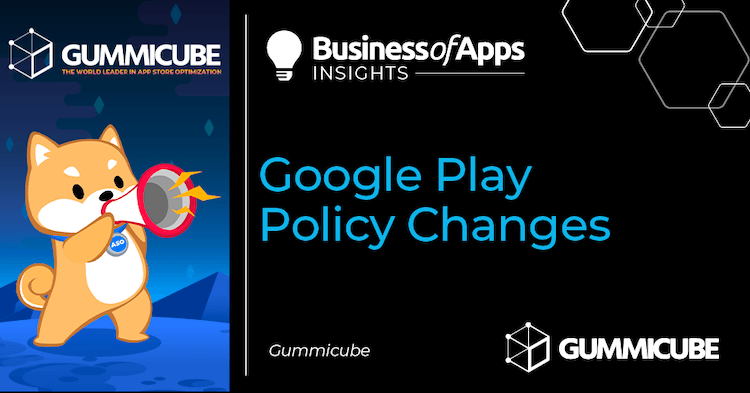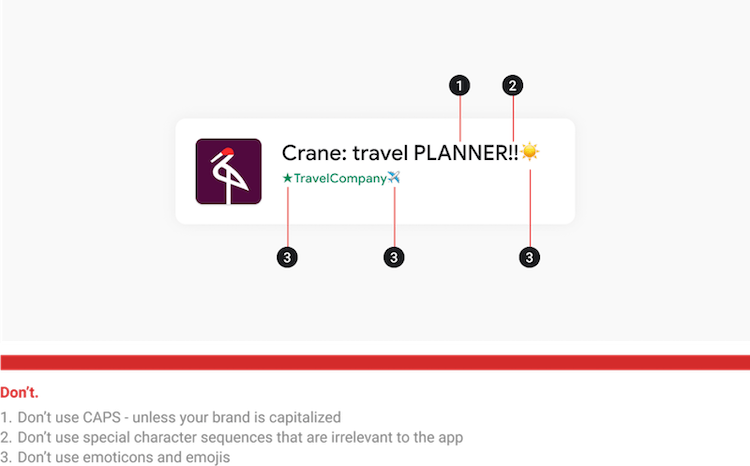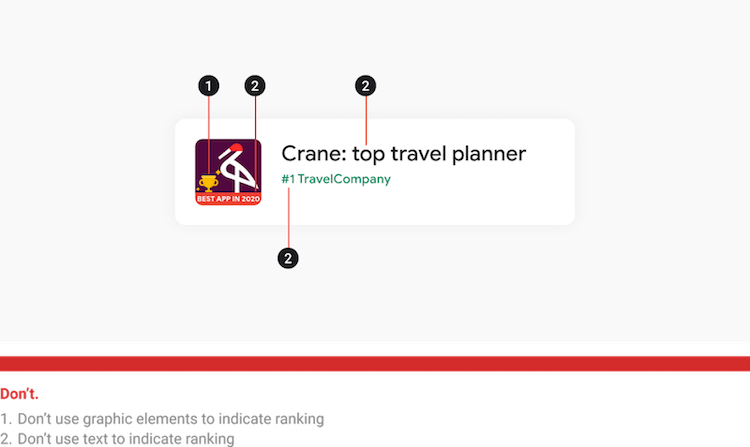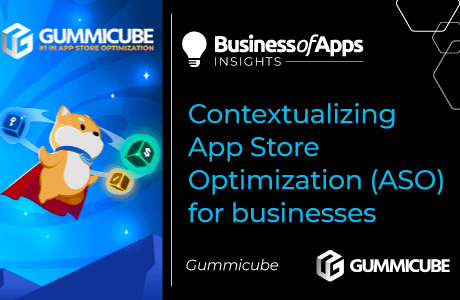
Earlier this year, Google announced changes to their Google Play Developer Policy. While the initial, “pre-warning” notice came as a direct message in the Developer Console inbox, the enforcement date was not initially as clear. The hard deadline for some of the more widely impactful changes, including those that can cause updates to be rejected or limit the potential for Google to promote an app, did go into effect on September 29th.
Though no strict enforcement date was given, changes to app title character length had been rumored to go into effect around the same time as other policy changes listed in the initial notice. As of last week, developers may already see a warning in the console concerning title character count or content. Google geared these policy changes toward trying to cut down on spam-like apps in the Play Store, and developers will start to see tighter restrictions on promotional messaging, title content, and title character count.
With some of these changes announced earlier this year finally being enforced, and others looking like they will be soon, it’s important to catch up on what they are and their potential impact on your ASO strategy.
App Title
As some developers may already be seeing, apps will need to now have shorter titles cut down to 30 characters or fewer. It is well known that Google indexes the title field for keywords, so this will likely impact the search ranking visibility of apps that are maximizing their use of the 50 character title space.
Developers who are currently exceeding 30 characters in their app titles should take time to assess their current keyword rankings using App Store Optimization software to determine which terms are giving them the greatest visibility boost. Google doesn’t have a backend keyword bank, so in order to build phrases, long-tail keywords included in an app’s title are some of the main drivers for indexation.
Well-optimized metadata should provide stability in ranking even with the loss of 20 characters. Additionally, the Short Description field will suffer no loss of characters, so essential long-tail phrases in the title can potentially be reworked into this area. Done strategically, this can preserve ranking and readability amidst these changes. That being said, some terms no longer allowed in the title field are recommended to not include in the Short Description: anything promotional, indicative of price or performance, etc.
Alongside restricting the character limit, app titles will also be rejected if they contain certain content that Google considers to make apps appear as “spam”. Such content includes emojis and special characters, repeat punctuation, and all capital letters – although the restriction of all caps does not apply to branded titles that are established as such.
Google’s example of a title in violation of several of these new rules.
Promotional Messaging
In their quest for cleaning up the Play Store front, Google is tightening restrictions on promotional messaging in front-facing metadata. Promotional language such as indications of performance, pricing, or calls-to-action may no longer be included in the app title field or the developer name.
The developer name can be indexed for search, however it is not weighted as heavily as the app title. Changing the developer name in the Google Play Developer Console is much simpler than Apple’s process, and doesn’t require the rigmarole of identification documents and review processes.
Misleading and promotional messaging or imagery in an app’s icon, including the same promotional language now banned from titles, will also not be allowed in icon images. Forbidden imagery includes mimicking notifications, like an “unread message” number, or using Google’s icons to falsely attribute “Instant Play” apps or ranking.
Google’s example of an icon in violation of several of these new rules.
Requirements and Recommendations
Along with the requirements above, Google has new “recommendations” for content in the Play Store as part of their strategy for cleaning up the appearance of their storefront. It is important for developers to understand the differences between these newly introduced guidelines when making updates to their store listings. From Google:
“Requirements” listed on this page are mandatory; failure to meet requirements may result in removal or suspension from Google Play.
Guidelines listed under “Highly recommended” on this page can help make your app or game more eligible for recommendation and promotion throughout Google Play. Failure to comply with these guidelines will not impact your store listing page, but may result in changes to how your preview assets appear on Google Play or limit promotional opportunities.
Whereas Google’s “requirements” are mandatory and cause for removal if violated, “recommendations” are optional guidelines that only impact promotional opportunities. This allows developers to continue testing promotional language and imagery in screenshots to gauge conversion, where winning variants that are compliant with Google’s new “requirements” can be applied elsewhere. Likewise, newly forbidden promotional language can still be targeted in the full description to compensate for any loss in keyword representation.
Overall
There are major changes underway in the Google Play Store which developers should stay informed about. Shorter 30 character titles will be directly impactful for many apps who are currently maximizing the 50 character title limit. Other changes may not have as widespread of an impact, such as the restrictions to promotional messaging and imagery, but it is still important to make note of these new rules. App rejections can make the next review process more difficult, particularly for new apps.
As these changes roll out, and developers across the Play Store make updates accordingly, be sure to monitor your organic ranking metrics, conversion rates and other performance indicators to stay ahead of the competition during and beyond any Play Store ecosystem volatility.














